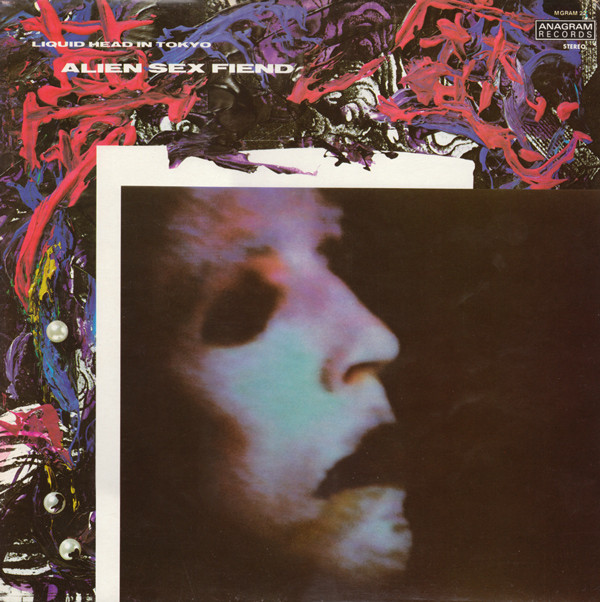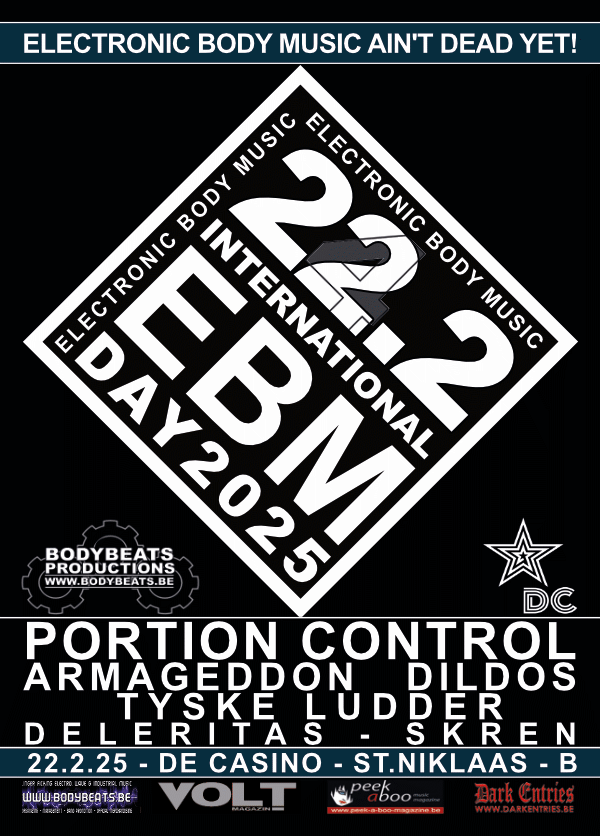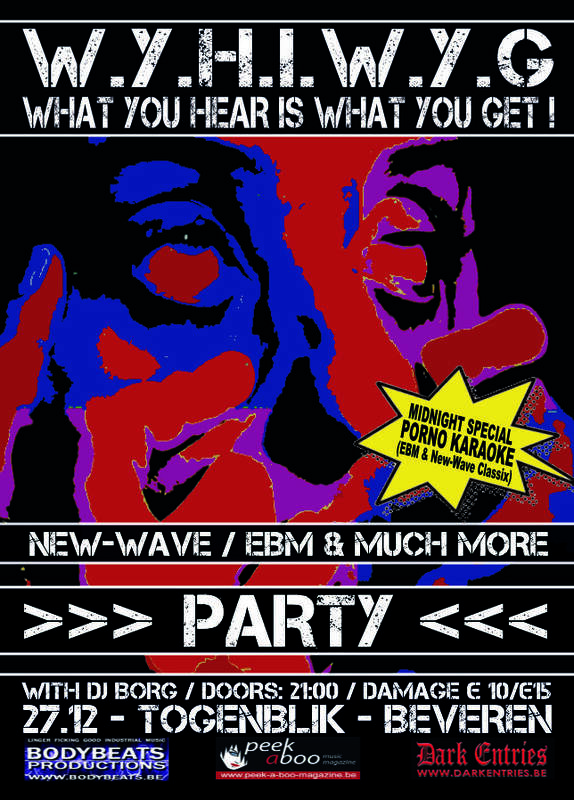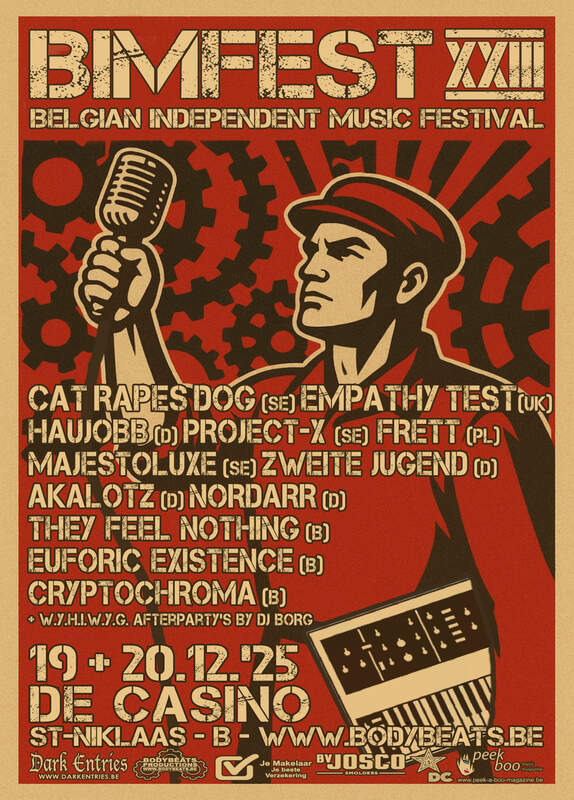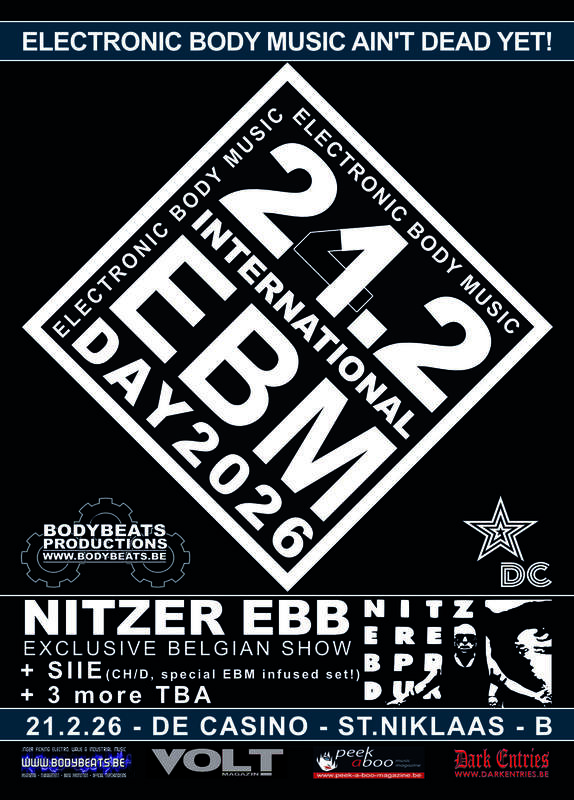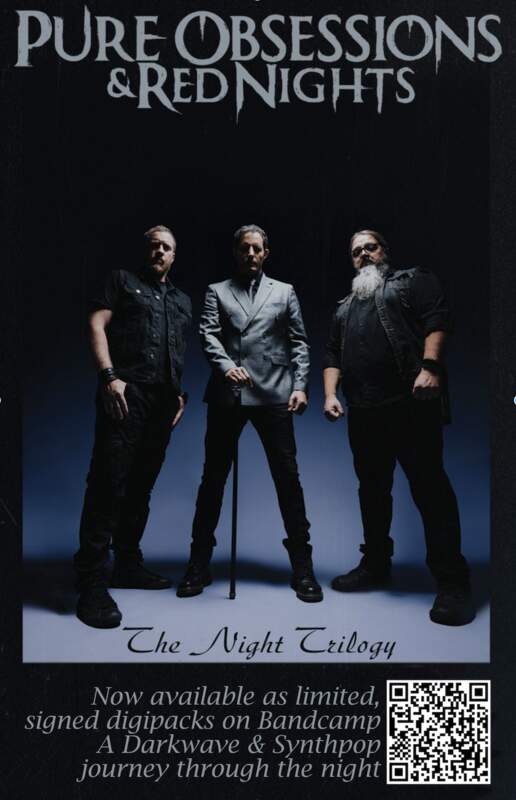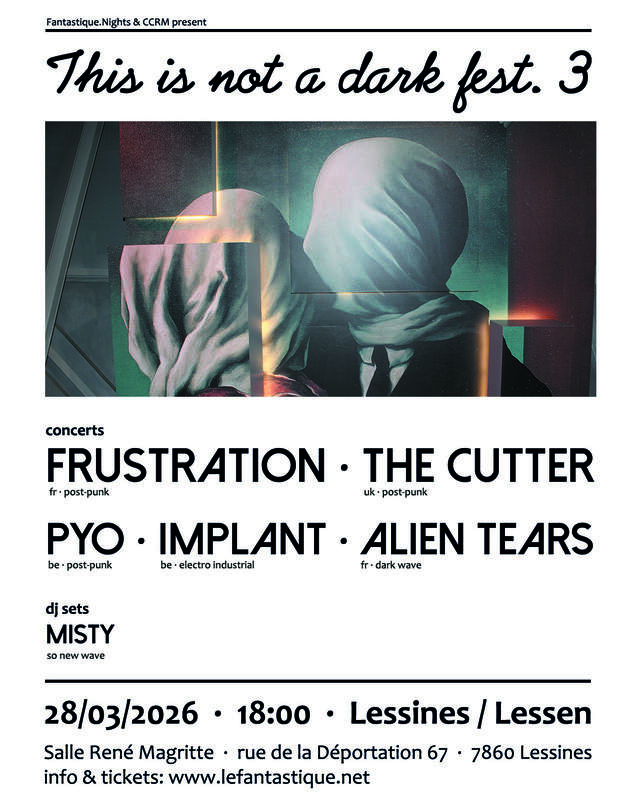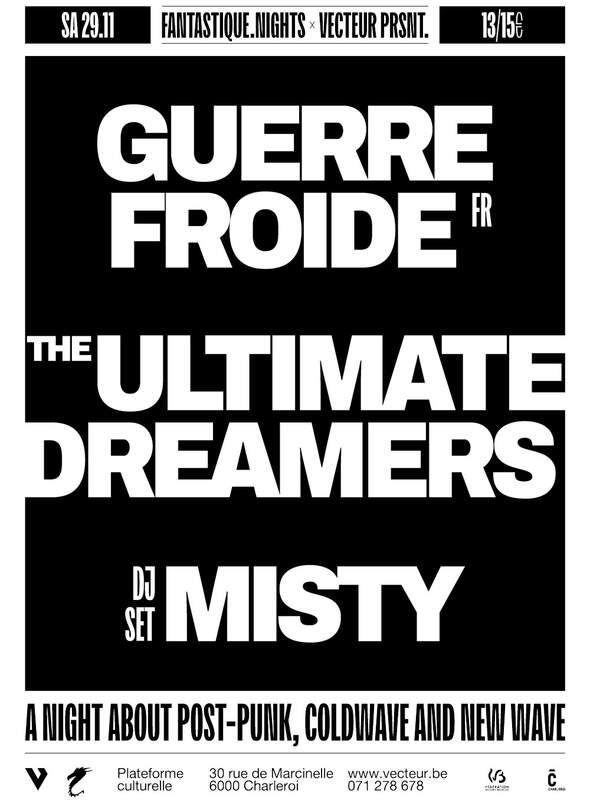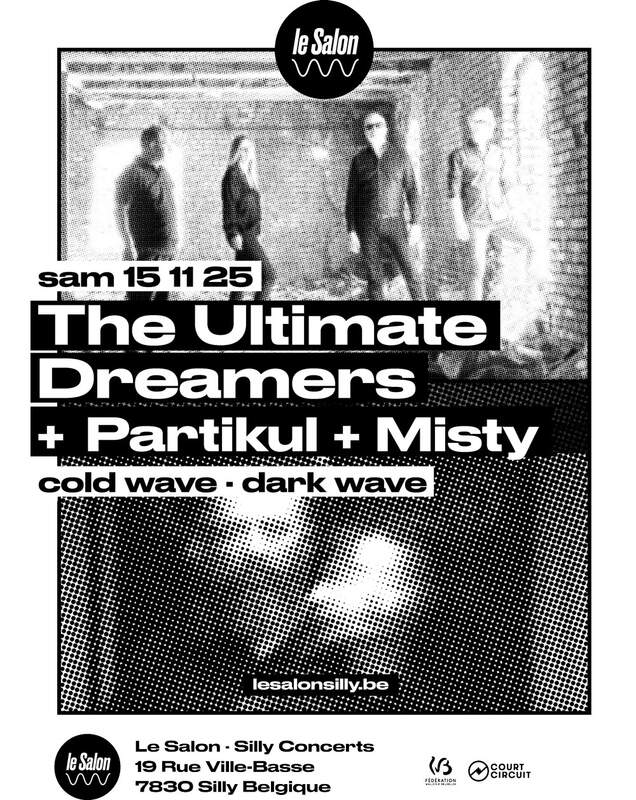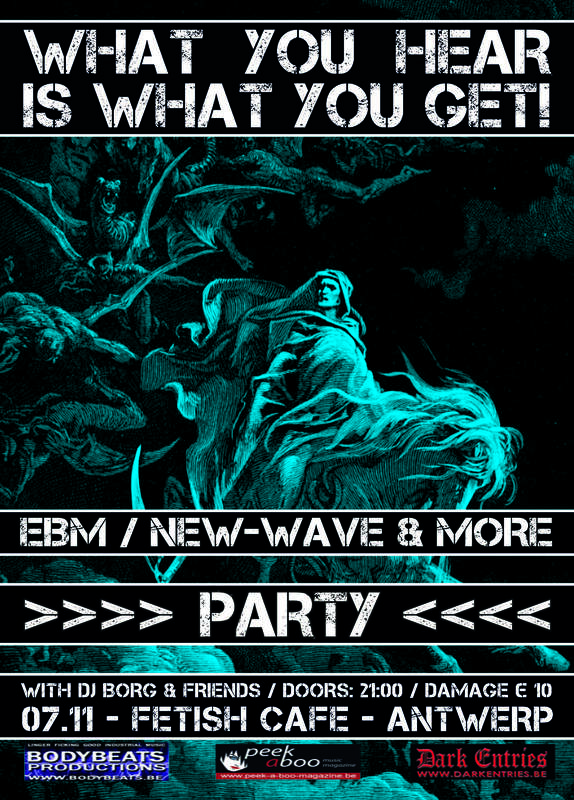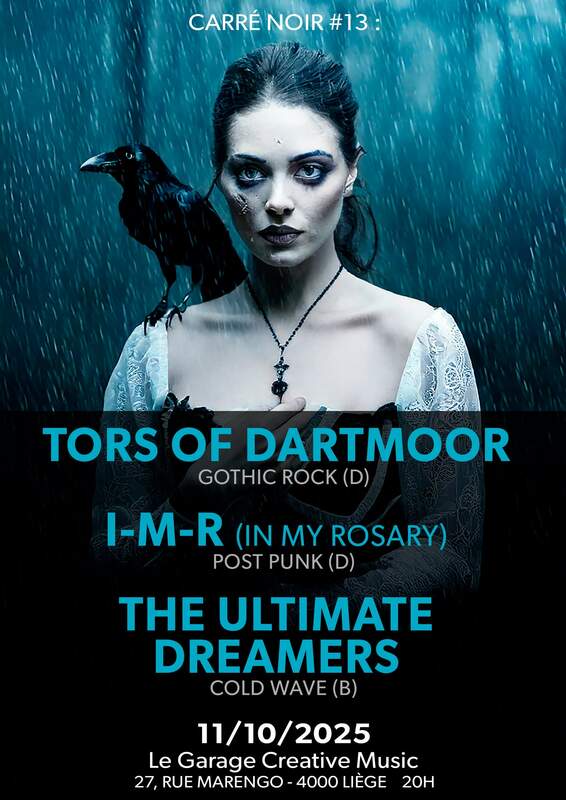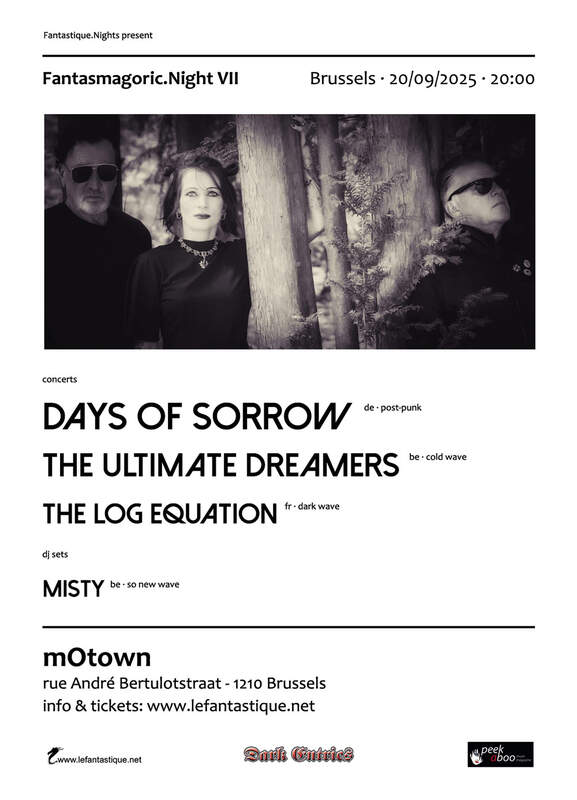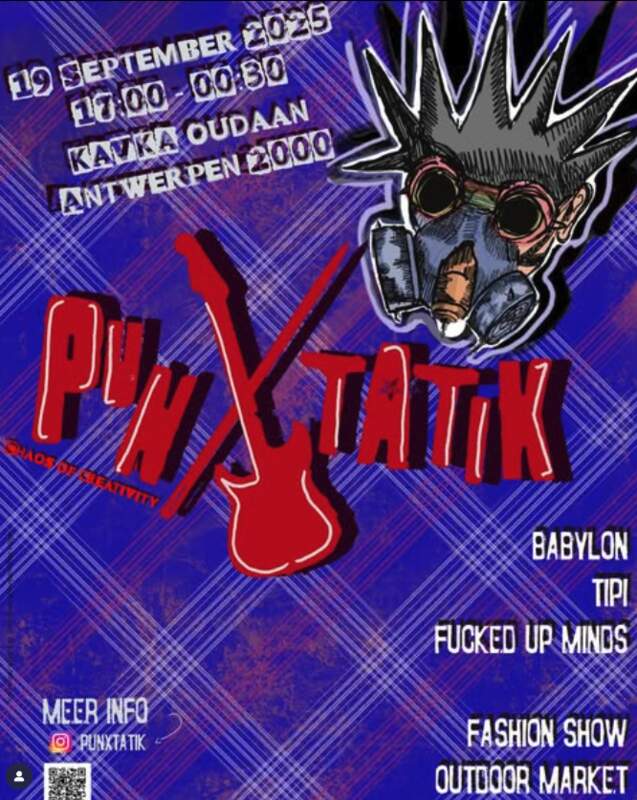Today, 40 years ago, Alien Sex Fiend recorded their live album and VHS video Liquid Head in Tokyo (17/01/1985). Liquid Head In Tokyo was recorded at Tsubaki House, at the end of a sell-out Japanese tour. It consists of selected recordings of both shows the band played that same day.
The VHS video and LP have a different tracklist
A 1997 CD re-issue features 4 bonus tracks, though these are not live recordings but normal and 12" studio versions.
Liquid Head In Tokyo (VHS 1985)
1 RIP
2 Dead & Buried
3 Back To The Egg
4 E.S.T.
5 Crazy
6 Hee Haw
7 Ignore The Machine
8 In God We Trust
Liquid Head In Tokyo (LP 1985)
A1 R.I.P. (Blue Crumb Truck) 3:45
A2 E.S.T. (Trip To The Moon) 5:33
A3 Dead And Burried 5:00
A4 In God We Trust (In Cars You Rust?) 4:27
B1 Back To The Egg 4:47
B2 Attack!!!!!! # 2 5:22
B3 Lips Can't Go 5:19
B4 Wild Women 4:56
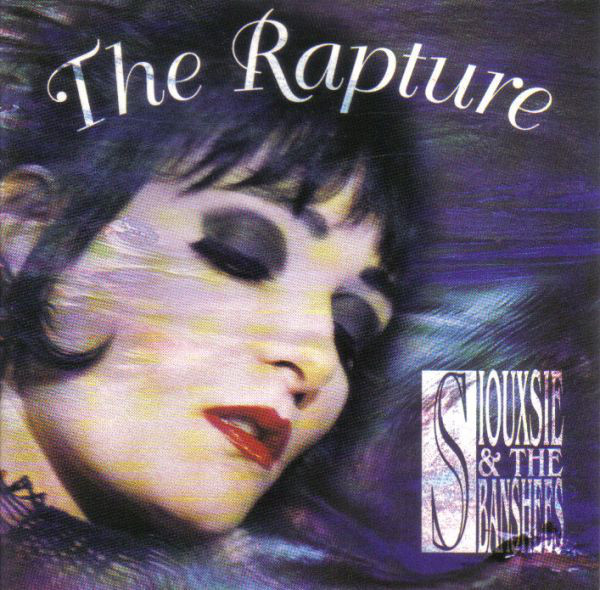
30 years Divine Rapture | Celebrating The Siouxsie and the Banshees 1995 and final album!
Today, 30 years ago Siouxsie and the Banshees released their eleventh and final studio album in the majestically divine “The Rapture”. This is a erotic-beast created over a year and a half with the Velvet Underground’s John Cale producing and mixing all but three tracks.
This however was not the dark-gothic masterpiece which people thought would close the career of those who forged that very path, instead it contains some of the more lighter elements in The Banshees work.
A natural progression is heard from their acclaimed 1991 offering “Superstition”.
It continues with the same flowing themes, Siouxsie Sioux as the confident, scorned femme-fatale, a chanteuse and not just a punk revolutionary, Sioux moved forward along with the sound built behind her.
From the start and throughout the twelve-track song cycle there is an experimentation, the title track itself is an eleven-minute journey that twists and turns through a haunting atmosphere like a wounded animal.
Along with “The Rapture” another gem to behold is the magnificent and melodic “Stargazer”, a very unnerving though accessible sound breaks through. The pleasures of “Sick Child” and the sublime “The Double Life” make up for any lack of dark joy an often criticism of “The Rapture”.
The last studio hurrah from Siouxsie And The Banshees is definitely worth a revisit, granted it is not cut from the same menacing cloth as “Juju” or “Peepshow”, nonetheless it is a staggeringly beautiful piece of work which shows great passion and depth, displaying Siouxsie Sioux as a singer and not just a screamer.
The Rapture, verse
“Wondering if I dare to say your name
Wondrous thoughts embalmed avow you came
By the crescent disc rising amethyst
How can love remain the same unchanged?
Moonlight plays upon this sunken brow
Midnight ink bleeds wet mercurial clouds
By the crescent disc rising amethyst
Somnambulist unharnessed storms the plow
By the crescent disc rising amethyst
How can love remain the same unchained?”.
The Rapture (Original 1995 Track List)
01. “O Baby”
02. “Tearing Apart”
03. “Stargazer”
04. “Fall from Grace”
05. “Not Forgotten”
06. “Sick Child”
07. “The Lonely One”
08. “Falling Down”
09. “Forever*”
10. “The Rapture”
11. “The Double Life”
12. “Love Out Me”
[Kevin Burke]
The 24th of February, which will gives you 24.2 of course , but this year it's on a Monday, that's why BodyBeats choose February 22. Meanwhile it will be almost a month ago when legend Front 242 pulled the plug on their live shows. However, their legacy will always remain, if only because they helped give the name, some even claim they were the inventors of Electronic Body Music. The fact that this genre, from the virtuous conception at the beginning of the 80s on, is still very much alive is proven by the now annually recurring 'International Ebm Day' in the De Casino in Sint-Niklaas.
On Saturday February 22 you can go 'stomping' to the music of Skren, Deleritas, Tyske Ludder, Armageddon Dildos and Portion Control.
Skren is a relative newcomer from Germany who is allowed to kick off, and does so with EBM that winks at the old dark electro in a post-industrial dance sauce, Just stir it! The duo from Düsseldorf was founded in 2012 but now seems to have kicked-off its second youth.
Deleritas is Belgian, with their cradle is in Liège they combines an EBM backbone with techno and aggrotech to create true dance floor killers. Deleritas recently released their second album “Culturae Doctrina” via the Steampunk Alien label. Get to know this album on the ‘international EBM day 2025!’.
Tyske Ludder is a name you should actually know because this formation bombed the dance floor in 1994 with the album “Bombt Die Mörder”, after which they also became very successful in our country with the album “Dalmarnock” on which the hit “Monotonie” made many legs move on the dance floor several times in the 90s. The years have flown by in the meantime but Tyske Ludder is still there, for example they released the single “Silvester” on New Year's Eve. Musically a mix of EBM and typical Teutonic dark electro. Their new album “Weltbühne” will be released at the end of January this year and will probably also be their soundtrack for the ‘international EBM day”. Here you go!
Armageddon Dildos is another project with a name and fame that put their ‘heads’ together in 1989 and for this ‘International Ebm Day” they used their joker, namely a real vintage Armageddon Dildos set. Or electro from the 90s, strongly influenced by the EBM and the darker electro exploits typical of the German electro wave of the 90s but also carrier of an American electro crossover fever. From east to west with this “Homicidal Maniacs”.
As headliner, the still living legend Portion Control was chosen. A band that made the electro industrial scene unsafe from the early 80s, when silence in the 90s, only to resurface again in 2004, to never leave again. Between electro with a sense for experiment and occasionally there's even room for poppy escapade. But always 'to the point' and since the 80s to the present still Cult with a capital C. As you can see, Electronic Body Music can be quite versatile, so come and convince yourself on February 22 at the wonderful De Casino in Sint-Niklaas.
An organization of Bodybeats Production of course, so surf to their website for all practical and information!
http://www.bodybeats.be/en/international-ebm-day/
Click this link for your tickets!
https://decasino.be/concert/ebm-day-2025/
Check-in on the Facebook eventi
https://www.facebook.com/events/897008528917224

The Dreams Will Always Linger | Remembering Dolores O’Riordan - 7 Year Anniversary
In the last number of years music fans have suffered loss after loss, idols who it seemed would outlive time itself passed into the ether. The rapture of legends was unforgiving to our heroes, the immortal figures such Prince, David Bowie, Chris Cornell, George Michael along with a greater parade of souls left us with their legacy in music.
Today, 7 years ago at home, that another shining talent had succumbed and slipped away unexpectedly.
The soaring passion of Dolores O'Riordan is measured with the uneasy and ripped emotions which heralded her passing. An obvious and true talent such as hers can sometimes bring fourth turmoil as if you knew them personally. When you question why, you may feel this way, the answer is simply through a relatable appreciation of the personal words Dolores sang. Those lines of song let you Inch into her world, creating a connection, for a time it felt that as Dolores would sing the world stopped to listen.
The Cranberries as a band had become a soundtrack to the nineties, singing along to their songs became easy very quickly, even if you were not their biggest fan or even knew who they were. Looking at the impact of their career early on, a picture builds of both the bands importance and the inspired vision of O’Riordan.
The Cranberries debut album in 1993; 'Everybody Else Is Doing It, So Why Can't We', is a phenomenal work of cleverly constructed songs with harmonious-crescendos and of course O'Riordans athletic vocal, rich and perfectly delivered with an effortless dramatic tension. The two single releases 'Linger' and 'Dreams' are still radio staples twenty-six-years after their release.
A realization quickly followed of the importance of Dolores and The Cranberries especially here in Ireland, a band which had released lush, lovelorn songs in the past were about to turn the critics inside out with their follow up album, the expectation of more of the same was blissfully torn apart with the 1994 release 'No Need To Argue'.
This album had a darker theme, an almost 'night' to the previous albums 'day', preceded by the radio unfriendly but steady grunge explosion that is 'Zombie'.
Heavily distorted guitars with which O'Riordan could sing over, at times turning into the sound of pure, emotional pain.
To those expecting another tune such as 'linger’ were more surprised than disappointed, which shows the character strength within O'Riordan and the band to follow their heart as a musical compass and not what is wished of them by fans, record companies and the FM-radio of the day.
This highlights perfectly the importance of the band, to survive such a change in direction, in saying that the album 'No Need To Argue' went on to sell in excess of seventeen-million copies, going number one in five countries. The case in point was increasing the volume increased the sales and popularity, what may have been viewed at the time as being commercial suicide led to wider acceptance.
Risks such as this are rarely taken in music, and voices such as that of Dolores O'Riordan are few and far between,and sadly missed.
Dolores Mary Eileen O'Riordan, born Ballybricken, Ireland, 6 September 1971 / + Londen, 15 januari 2018.
“Suddenly something has happened to me
As I was having my cup of tea
Suddenly I was feeling depressed
I was utterly and totally stressed
Do you know you made me cry? Whoa oh oh
Do you know you made me die?
And the thing that gets to me
Is you'll never really see
And the thing that freaks me out
Is I'll always be in doubt”
Animal Instinct - The Cranberries
[Kevin Burke]

Today, 46 years ago, the Sex Pistols played their historic 'last' show! Watch it here!!
In October 1977 the Sex Pistols release their first and only studio album Never Mind the Bollocks, Here's the Sex Pistols. Only a couple months later the band became a victim of their own succes and started to fall apart. After their, what was going to be, last performance on UK soil in December the same year, the Sex Pistols went on their first and last American tour (January 1979).
Meanwhile Sid Vicious' drug abuse continued to swirl, while Johnny Rotten was becoming tired of the scene altogether. He started to realize he was now fully involved in the same entertainment industry that he so detested.
Rotten would later state: “ I felt cheated and I wasn’t going on with it any longer. It was a ridiculous farce. The whole thing was a joke at that point.”
At the end of this last show he made clear to everyone how fed up he was. Before the last song from their set, Rotten asked his fans “Tell us, how does it feel to have bad taste?” After they played that song, “Anarchy in the UK/USA”, they were called back by the audience for an encore to which he replied “You get one number and one number only, because I’m a lazy bastard”.
During that final song, ’No Fun’ (originally by the Stooges), he can be heard singing “This is no fun, no fun / This is no fun at all, no fun”.
Rotten left the stage after sneering his very last words as Sex Pistols singer to the audience “ever get the feeling you’ve been cheated? hahaha..”
And so he decided to leave the band after this final tour date on 1/14/1978 - Winterland (San Francisco, CA).
The band was now decapitated and was left with a gimmick ….
Sid Vicious tried to take over Rottens duties by posing on pictures with runaway train robber Ronnie Biggs and covering Frank Sinatra's "My Way" ….
But when he overdosed and died on February 2, 1979, just little more than one year after the ‘final’ show, the Sex Pistols came to a de facto end.
Sex Pistols reunions, with original bass player Glen Matlock back on bass, followed in1996 and 2007.
Setlist:
God Save The Queen
I Wanna Be Me
I'm A Lazy Sod
New York
EMI
Belsen Was A Gas
Bodies
Holidays In The Sun
Liar
No Feelings
Problems
Pretty Vacant
Anarchy In The UK
No Fun
Line-up:
Johnny Rotten - lead vocals
Sid Vicious - bass, vocals
Steve Jones - guitar, vocals
Paul Cook - drums


